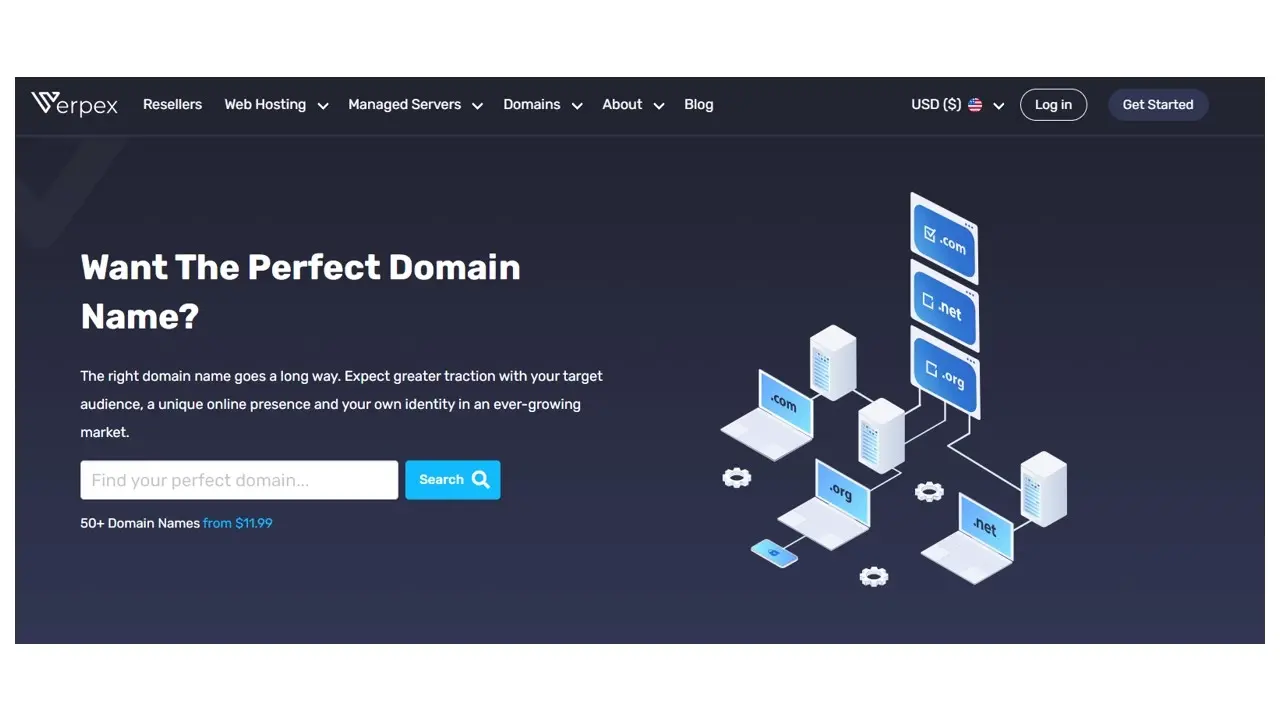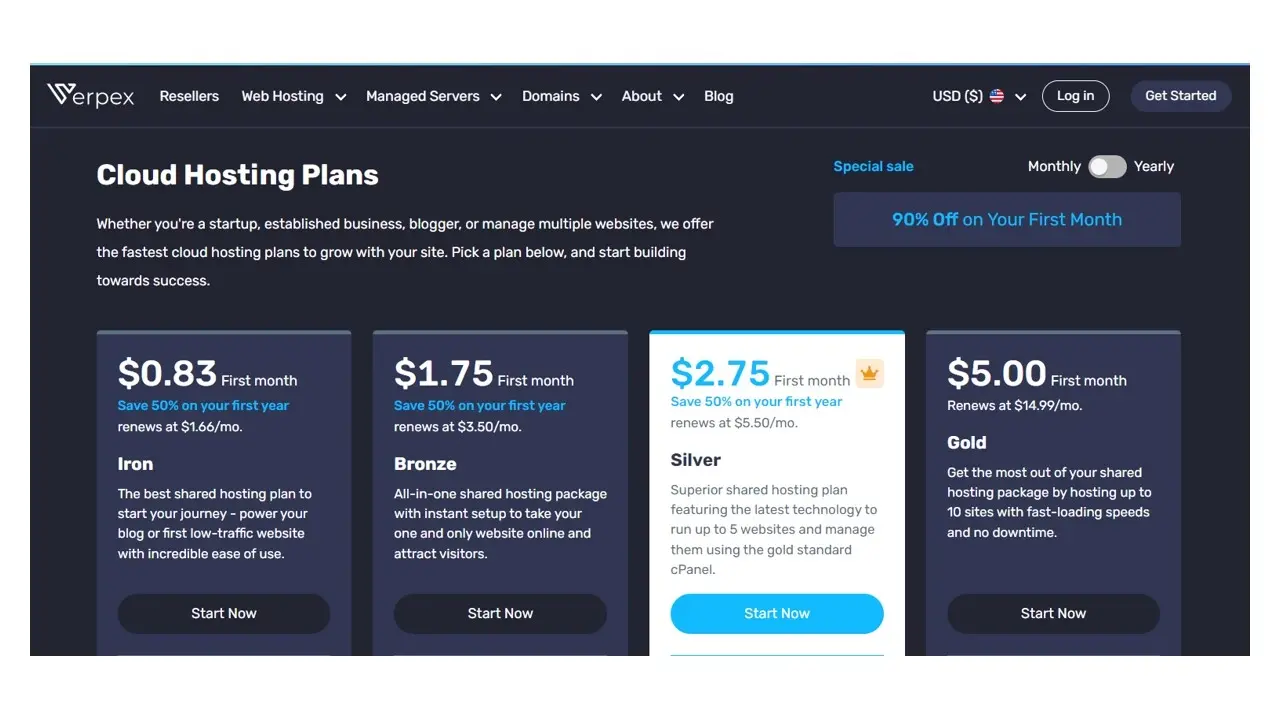Are you considering launching a small business? If this is the case, you will need a website to market your online business and engage with clients. Whether you're in e-commerce or conducting face-to-face business, your website is where prospective customers will go first to learn about you and decide whether to venture with you.
According to Fit Small Business, approximately 71% of small firms have a website. A website is vital not just for your company's name and brand awareness, but it may also help in generating leads and converting clients.
Follow these tips on creating a website and having a successful online presence.
1. Determine your purpose and goals in building a website
There is no "one size fits all" approach for website for small business. Before you begin, you should examine your goals so that you may apply design components and tools to meet your aims.
You should also consider the anticipated traffic to the website. If you wish to sell things online, you may get more attention than a local firm that sells in person. Your requirements in this area will determine which platforms and hosting providers are appropriate for your site.
Once you've decided on a path for your website's goals, you can begin designing and creating it.
2. Identify the best approach to creating websites
Setting up with the best website builder for small business
A website builder is the simplest solution. The features of a website builder for small business include the template or design, editor, domain name, web hosting, email address, and support. Almost every website builder allows you to establish a free primary webpage on an ad-supported subdomain. Using such a strategy, you can test it thoroughly before deciding whether the cost of getting a website builder is worthwhile.
If you wish to take your brand online, you should think about a paid package that includes all necessities. Add a few more dollars if you require a corporate email address for your company website.
Creating with a CMS
Content Management Systems (CMS) are a little more sophisticated. While they have way less limitations and give way more features and flexibility, they are a bit more complicated to use if you're a beginner. However, you should consider building your small business website with a CMS if you prefer to leave a room for improvement and growth.
Program a business website yourself
Businesses that require complete autonomy will have to create the page themselves. You will need patience for this, and it is often overwhelming and frustrating for newbies.
Websites with step-by-step tutorials for newbies, such as Codecademy and Mozilla, are a fantastic place to start. However, expect a lengthy process before your business website is complete.
You can also engage a site designer to expedite the process. Just remember that your designer should not be performing your coding and vice versa. Each of these duties necessitates a unique set of talents.
3. Obtain a Good Domain

Choosing the appropriate website domain name is essential to your success. Consider the most popular top-level domains when selecting one for your business. Changing it afterward without harming your business and search rankings might be difficult if you choose the wrong domain. Therefore, you must select the ideal domain name from the beginning.
4. Choose a Hosting Service

After you get a domain, you would need a server for your website visitor to connect to. And that’s where a hosting service comes in. This is not just a server that stores all the data and files your website needs to run correctly, but it’s also crucial for security and other services.
A good cloud hosting provides you with data storage, a safe and stable server environment, reliable customer service, fast loading times, and customizable pricing.
5. Create a professional website design
According to a study published by PR Newswire, more than half of internet users cited web design as a significant element in forming an opinion about a company.
A professionally designed website is critical to your company's overall success. And the greatest websites are simple to use, quick to load, and mobile-friendly.
Customers should know your brand and its value within seconds of visiting your website. If people can't figure out how to browse through your website or discover what they're looking for, they're likely to leave and go elsewhere.
In addition, while designing with a professional touch, a business website should feature a logo that represents your brand. It should also have high-quality photos and videos, strong calls to action, simple navigation, rapid website load times, and security features.
Website themes can help in creating a professional website. Still, if you don't know where to begin, it's generally best to engage a web designer who understands your business and can construct a website that reflects your brand. They can assist you in building a website that looks fantastic and turns people into clients.
6. Utilize Professional Images and Videos
It is crucial to have professional images on your website to sell products or services. These help customers comprehend your offerings and can be utilized to demonstrate your brands in motion.
If you cannot afford a professional photographer, numerous alternatives are available online. The websites iStockPhoto, Dreamstime, and Shutterstock offer stock photography for purchase.
Video is also a great way to engage visitors and can be used to demonstrate your products and services in greater depth. Additionally, adding videos to your website can increase its SEO performance.
7. Install appropriate plugins to improve your website’s features
Plugins allow you to add features like a contact form, search bar, and robust SEO tools. If you wish your business website to do more than simply display business information, WordPress plugins such as live chat plugins for WordPress to enhance its functionality is a fantastic idea.
8. Maximize Search Engine Optimization (SEO)
SEO is the process of boosting your website's ranking on search engines such as Google, Bing, and Yahoo. The practice is significant since it can help your site appear on the first page of search engine results when prospective customers search for the items or services you provide.
Research by BrightEdge evaluated various websites and revealed that 51% of the traffic for business websites is led by organic search.
Generating high-quality material relevant to the audience and integrating keywords throughout your website are two of the most effective strategies to increase your website's SEO and performance.
9. Invest in SEO solutions
To improve the SEO of your website, you must have access to the appropriate tools. Many excellent SEO tools can assist you with keyword research and backlink analysis.
Moz Pro, SEMrush, and Google Analytics are some of the most well-known SEO tools.
While these solutions are excellent for enhancing your website's SEO, it is essential to realize that none of them can ensure success. To achieve the best results, it is vital to utilize various methods and strategies.
10. Boost your website for mobile
It is crucial to enhance your small business website for portable devices to offer mobile visitors a positive experience. You can achieve this by employing a responsive layout or developing a dedicated mobile webpage. In addition, you can use tools such as Google's Mobile-Friendly Test to evaluate the performance and usability of your website on mobile devices.
11. Add Social Media Integration
Including social media integration can assist increase website engagement and traffic. By including social media buttons on your site, you make it simple for users to share your material on their preferred social networks. Furthermore, social media integration allows you to monitor the performance of your material on social media.
12. Put up a booking section or online store
It is essential to include a booking section or online store on your webpage if you offer products. A website that allows people to purchase your items via desktops, tablets, and mobile devices can aid in the expansion of your small business. In addition, many eCommerce platforms help monitor sales and inventory, allowing you to gauge the success of your products.
Grow your Small Business with a Dynamic Website

For a small business to remain competitive in the current market, its website must be a destination that visitors love visiting. Whether you're launching a new store or redesigning your website, use the advice above to reach out to customers and engage with them in a manner that they appreciate. You should also consider getting builders that offer affordable websites for small business.
Improving your website may appear intimidating. But if you know the best practices and things to avoid in creating a website, then developing your business page will be one of the most beneficial activities you can undertake for your brand. A well-designed web page pays off, promoting your business to potential clients who were not even looking.
Frequently Asked Questions
How does a web hosting business work?
The reseller hosting business uses a powerful hosting plan that is separated into smaller pieces and sold to several customers.
Will my hosting business be anonymous?
Yes, through the use of Whitelabel reseller servers, your customers won’t know you’re reselling.
Can I use Magento for small businesses?
Of course. While the platform is perfect for enterprise clients, smaller organizations can still benefit from the highly customizable nature of the platform.

I've been navigating the web hosting waters for years now. As the Chief Editor at Verpex, I team up with some awesome writers to dish out the good stuff on hosting. Got a Master's in Journalism, so I always have an eye out for quality. Whether you're just dipping your toes or you're a seasoned surfer, I'm here to make everything web hosting feel like a breeze
View all posts by Julia Lozanov



















